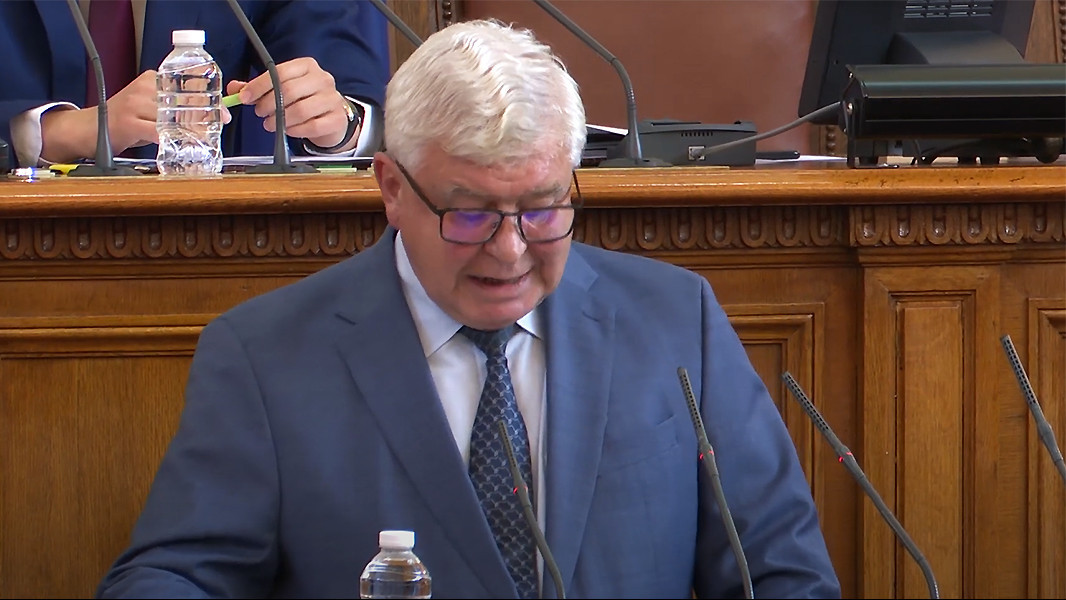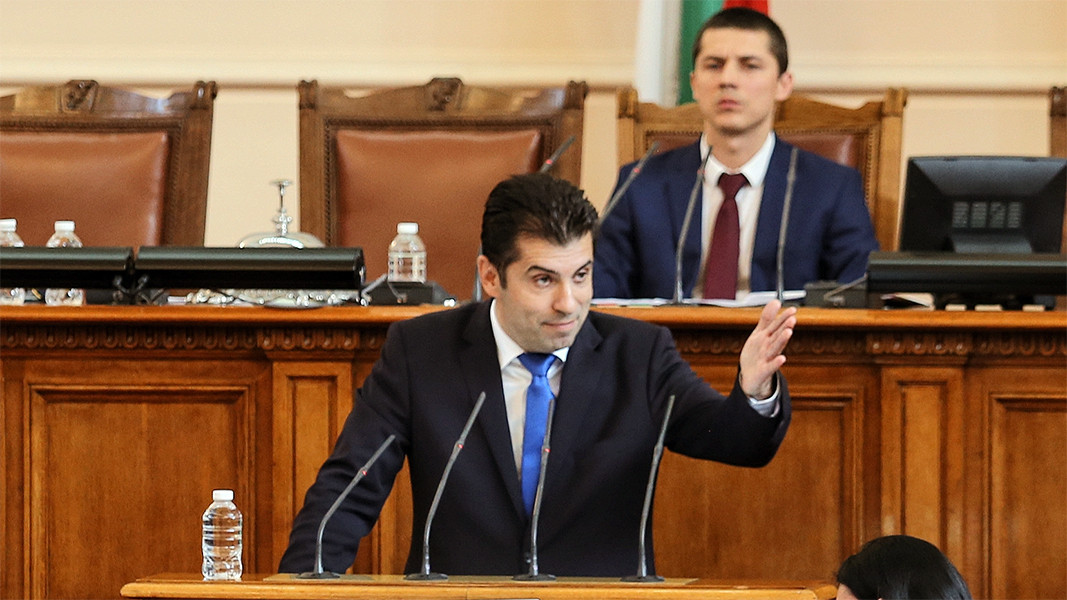Record inflation, delayed payments under the Recovery and Resilience Plan, a drop in foreign investments and a deficit – these are the principal motives cited by the opposition – first and foremost GERB-SDS – for demanding a vote of no confidence in the cabinet of Prime Minister Kiril Petkov.
Some of these arguments were expounded, in plenary, by GERB MP Kiril Ananiev, former minister of finance and minister of health in the last Boyko Borissov cabinet:

“Overestimated economic growth, underestimated inflation, underestimated deflator with a view to the surge in producer prices on the domestic market. A high budget deficit, a huge national debt that is going to weigh heavy on generations to come, a negative current account for the first quarter because imports have doubled compared to exports, the contribution of the net exports to the GDP has deteriorated. An unrealistic reduction of unemployment of 4.5%, critical fiscal reserve amounts, and many more inaccurate macroeconomic planning estimates.”
Kiril Ananiev pointed out further that financial and economic policy was not something abstract, and that this government deserves a vote of no confidence for its overall policy. “This policy is a reflection of the state and the development of all spheres in the public sector, in finance and the country’s overall social and economic development,” Kiril Ananiev stated. “Bulgaria is second in price growth. The population is losing its spending power, inequalities are widening.”
In response, Prime Minister Kiril Petkov described the arguments of the opposition as “fantastical”, and pointed out that “false insinuations” have been made over the past six months against the backdrop of the social and economic step the government has taken:

“We raised the minimum monthly salary from BGN 670 (EUR 335) to BGN 710 (EUR 355), we supported young families with additional tax deductions. For the first time in many years we have nurseries and kindergartens that are free of charge, we allocated BGN 100 million (EUR 50 million) for sports and culture camps. We raised monthly pensions from BGN 300 (EUR 150) to 370 (EUR 185). For July we have envisaged an update of the minimum monthly pension and it will be BGN 467 (EUR 233). This unprecedented increase in incomes by 55% over one year, is something that was not done during the past 12 years. We increased the budget by BGN 315 million (EUR 157.5) for the system of education, which is a guarantee that the average teachers’ salary will be 25% higher than is the average for the country. To doctors we also guaranteed decent pay, with a basic monthly salary of BGN 2,000 (EUR 1,000) for doctors and BGN 1,500 (EUR 750) for nurses. General practitioners are going to get a 38% pay increase, compared to the previous year. This is a precondition for bringing in more young specialists. The measures we are envisaging with the budget update are: zero VAT for bread, BGN 0.25 (around EUR 0.14) off petrol and diesel, exemption from excise duty for electricity and liquefied gas, a reduction of VAT on central heating down to 9%. For businesses we adopted programmes for support and for cushioning the unstable electricity and gas prices, amounting to a total of BGN 3.5 billion (EUR 1.75 billion). So, the prices of electricity and of gas did not go up, compared to the prices from October. For household consumers, electricity prices remained the same. All this, while on the international market the price of oil went up by 54%, while the price of gas has trebled in the past 12 months.”
In a speech, the chairman of the budget committee Lubomir Karimanski of the ITN pointed out unfulfilled points of the coalition agreement in the field of finance and economy. "Bulgaria had to become a logistics and financial hub by opening financial centers for multinational companies and attracting them through transport networks. How many companies have come to the country and how many such transport networks have been built?" he asked. The MP also said that no plan had been prepared for reforms proposed by the other parliamentary groups.
Minister of Finance says opposition’s reasons for motion of no confidence are groundless
"The backstage players feel threatened because the change has begun and because they see their salvation in the return of the status quo", Deputy Prime Minister and Minister of Economy and Industry Kornelia Ninova said from the parliamentary rostrum. In her words, Bulgaria is stable in terms of finance and despite all circumstances, its economy is developing well. However, there are some open issues such as price growth, impoverishment, inequality, a decrease in purchasing power, Kornelia Ninova said.
The leader of the Movement for Rights and Freedoms Mustafa Karadayi called Premier Kiril Petkov an "oath-breaker" and a "violator of the Constitution" and urged the MPs to support the no-confidence vote.
"We hear one more bunch of lies" – This is how the leader of "Vazrazhdane" party Kostadin Kostadinov commented on the statements of representatives of the ruling majority. He also said that nine ministers took the unilateral decision to introduce the Euro.
The members of parliament will continue their session at 10 AM on November 22, following yet another unsuccessful attempt to elect a Speaker of the National Assembly. In the last vote on Wednesday, November 20, the candidacies of Raya Nazaryan from..
Nearly a month after the 27 October early parliamentary elections, the 51st National Assembly is still not able to begin its work because MPs are unable to elect their first among equals. Bulgaria's political impasse is compounded by burning concerns..
DPS-New Beginning MP Yordan Tsonev said in an interview with BNT that no one has requested support from their party for the election of National Assembly Speaker. Yordan Tsonev criticized We Continue the Change- Democratic Bulgaria for violating a..
Pro-Russian candidate takes lead in first round of presidential election in Romania In a shock development, independent far-right, pro-Russia..

+359 2 9336 661
